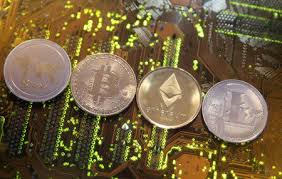MAS-registered Dtcpay, formerly known as Digital Treasures Centre, offers some point-of-sale and online cryptocurrency payment services already.
The Singaporean company dtcpay is introducing a payment system for online and in-store transactions that will accept both fiat and cryptocurrency payments. In its announcement, the company mentioned Bitcoin, Ether, and Tether.
The business is collaborating with Allinpay International to develop smart terminals and a digital interface, and with open-source blockchain PlatON to provide privacy-protected digital infrastructure. China is the home base for both PlatOn and Allinpay. The Monetary Authority of Singapore (MAS) has DTCpay and Allinpay listed as significant payment institutions.
A spokeswoman for Tonghua International, the parent company of Allinpay, stated:
“This cooperation will help merchants better adapt to the modern payment trend and meet the needs of young consumers.”
Dtcpay will integrate new cryptocurrencies into the new service and exchange fiat and cryptocurrency. Point-of-sale and online checkout are already offered. In September, dtcpay signed an agreement with Singapore-based POS provider Jeripay to offer cryptocurrency payment services on its 8,000-terminal network and wrapped up a deal with London-based Sumsub to provide Know Your Customer services for the dtcpay digital wallet.
dtcpay, which was founded in 2019 and was formerly known as Digital Treasures Centre, was chosen in November 2022 to take part in Mastercard’s Mastercard Start Path programme for blockchain and cryptocurrency startups. In a pre-seed funding round in June, the real estate conglomerate Pontiac Land Group backed it.
In Singapore, where consumer protection and progressive cryptocurrency regulation are highly valued, electronic payments are widespread. Major payment institution licences were granted by MAS to Coinbase and Ripple in October. Although the MAS has said that it sees “no urgent use case” for a retail CBDC, the city-state is also experimenting with digital currency issued by the central bank.


